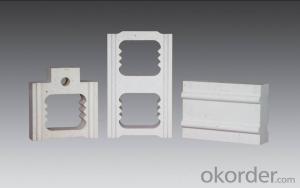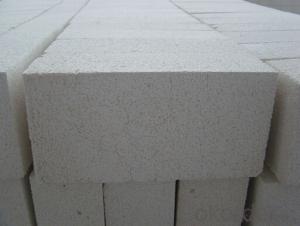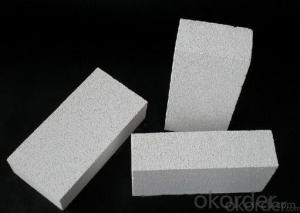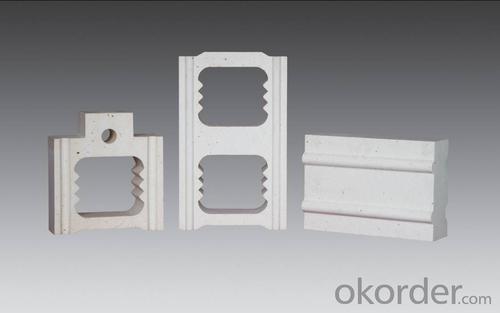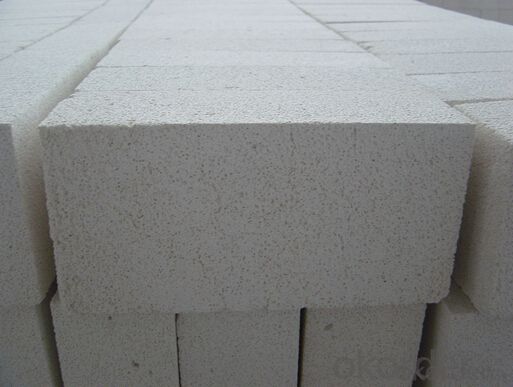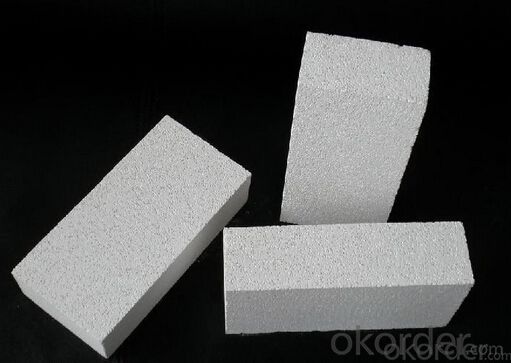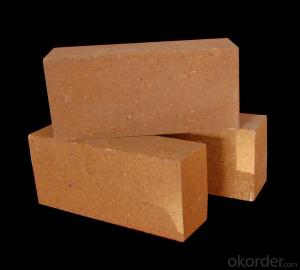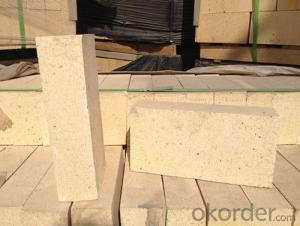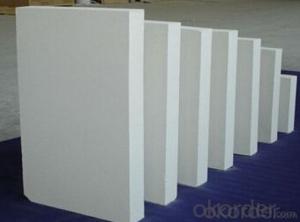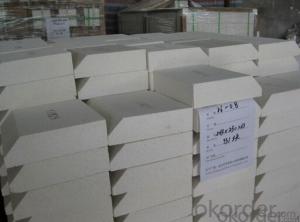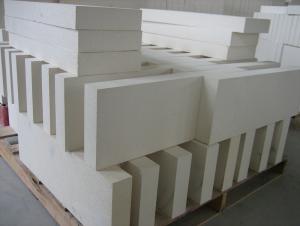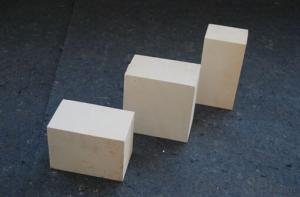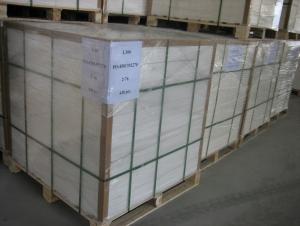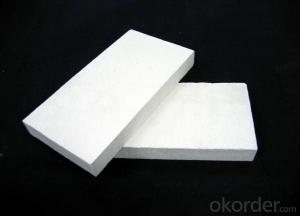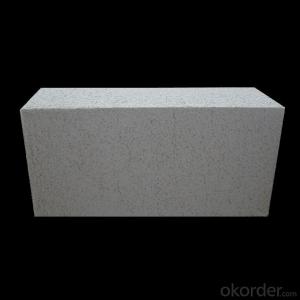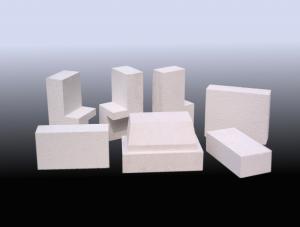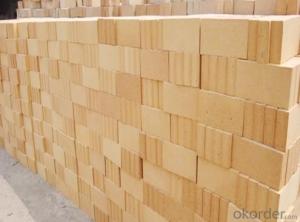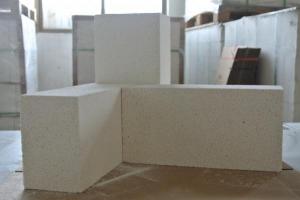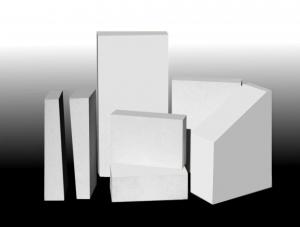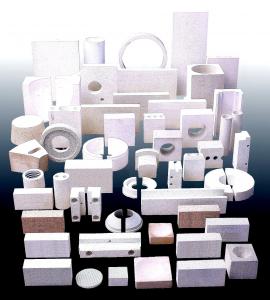Refractory Mullite Insulating Fire Brick JM 32
- Loading Port:
- Shanghai
- Payment Terms:
- TT OR LC
- Min Order Qty:
- 5000 kg
- Supply Capability:
- 100000 kg/month
OKorder Service Pledge
OKorder Financial Service
You Might Also Like
OKORDER Series Insulating Bricks
OKORDER series insulating bricks are a kind of highly efficient, energy saving, low-carbon, environmental protection advanced products which are manufactured according to ASTM standard. OKORDER series products are the best lining and insulation materials in all types of industrial furnaces in the field of Metallurgy, Aluminum, Petrochemical, Ceramics, Power and Glass. They can be applied as heat insulation or no-melt erosion parts of the working layer. The products have been widely used in the following furnaces and achieved satisfactory results.
Application of Insulating Bricks
Metallurgy industry: Blast furnace, Hot blast stove, Reheating furnace, etc.
Petrochemical industry: Ethylene cracking furnace, Hydrogen production furnace, Primary reformer furnace, Reheating furnace, etc.
Ceramics Industry: Roller kiln, Pusher kiln, etc.
Glass industry: Glass furnace regenerator, etc.
Carbon Industry: Carbon roaster, etc.
Aluminum electrolytic industry: aluminum reduction cells,etc.
Other industries: Tunnel kiln, Shuttle kiln, etc.
Advantages of Insulating Bricks
Low Thermal Conductivity: More porosity brings excellent insulation effect, energy saving.
High Crushing Strength: High crushing strength under thermal state, volume stability.
Low Heat Storage: Little thermal storage when absorb more heat, energy saving effect is obvious.
High Purity: Low content of iron, alkaline and metal impurities.
Accurate Dimension: Precise brick size by machining, cutting and grinding special shapes, expediting bricklaying.
Picture of Insulating Bricks
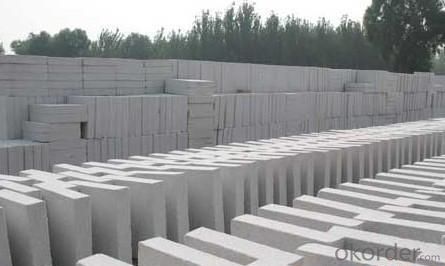
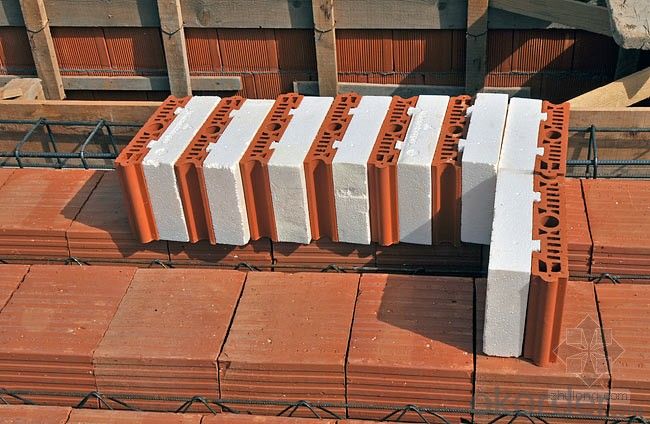
FAQ
1. Which products do you have?
We have all kinds of refractory brick, castable, mortar, cement, ceramic fiber products, etc.
Or you could browse our products to choose what you need.
2. How do you control the products quality?
With strict quality control system throughout the materials selection and production process, our refractory and ceramic fiber products quality is effectively controlled to meet customer requirements.
From the raw materials selecting, our quality control begin. The quality certificates of raw materials are required and each batch will be tested before using. During production, the quality control are conducted by workers and then each piece will be sorted and examined by quality supervise.
3. Can you give me a brief introduction of the application of your products?
We are mainly specializing in the refractory materials in iron and steel, cement, glass, ceramics, petrochemical, electric power Industry, etc.
4. If I need your offer, what information do you need?
In order to choose suitable products, it will be appreciated to provide us the information, such us specification, technical data, order quantity, products application etc.
If any question, please contact us freely.
- Q: Can insulating fire bricks be used as insulation in walls and roofs?
- Insulation in walls and roofs can be achieved by utilizing insulating fire bricks. These bricks are constructed from lightweight materials that possess exceptional thermal insulation properties. Their thermal conductivity is low, allowing them to effectively minimize heat transfer through walls and roofs. Consequently, they are a fitting selection for enhancing energy efficiency and insulating buildings. Furthermore, insulating fire bricks are both long-lasting and fire-resistant, rendering them a secure choice for insulation. Nevertheless, it is crucial to acknowledge that these bricks are typically employed in high-temperature environments such as furnaces and kilns. Thus, they might not be the most economical or practical option for all wall and roof insulation requirements. In terms of cost, installation ease, and overall performance, other insulation materials specifically designed for building applications may be more appropriate.
- Q: Are insulating fire bricks resistant to abrasion or erosion?
- Insulating fire bricks are generally not resistant to abrasion or erosion. While they are excellent at insulating heat, they are typically made from materials that are not designed to withstand high levels of wear and tear. Insulating fire bricks are often used in applications where they are not exposed to significant mechanical forces or abrasive materials. If abrasion or erosion is a concern, a different type of refractory material or lining may be more suitable for the specific application.
- Q: Can insulating fire bricks be used in the construction of flue gas ducts?
- Yes, insulating fire bricks can be used in the construction of flue gas ducts. Insulating fire bricks are specifically designed to withstand high temperatures and provide excellent thermal insulation. This makes them a suitable choice for lining flue gas ducts, as they can help to reduce heat loss and improve energy efficiency. Additionally, insulating fire bricks are resistant to chemical corrosion and can withstand the corrosive effects of flue gases. However, it is important to ensure that the insulating fire bricks used are specifically designed for flue gas duct applications and meet the necessary safety and regulatory requirements. Consulting with a professional engineer or specialist in the field is recommended to ensure the correct selection and installation of insulating fire bricks in flue gas ducts.
- Q: What are the new types of building brick materials?
- The whole material made of brick and mortar is one of the most widely used building materials. According to whether the masonry is reinforced, it is divided into unreinforced brick masonry and reinforced brick masonry.
- Q: Are insulating fire bricks suitable for insulation in refinery heaters?
- Yes, insulating fire bricks are suitable for insulation in refinery heaters. Refinery heaters operate at extremely high temperatures, and insulating fire bricks are designed to withstand these temperatures and provide effective insulation. These bricks have low thermal conductivity, which means they can prevent heat from escaping the heater, thus reducing energy loss and increasing the overall efficiency of the heater. Additionally, insulating fire bricks have excellent thermal shock resistance, meaning they can withstand rapid temperature changes without cracking or breaking. This is crucial in refinery heaters, as they often experience frequent temperature fluctuations during operation. Furthermore, insulating fire bricks are lightweight and easy to install, making them a convenient choice for insulation in refinery heaters. Overall, insulating fire bricks are a suitable and effective option for insulation in refinery heaters.
- Q: Do insulating fire bricks have a high insulating capacity?
- Insulating fire bricks possess a remarkable capacity for insulation. Crafted with utmost precision, these bricks exhibit exceptional thermal insulation characteristics, rendering them exceptionally proficient in obstructing heat transfer. Their composition entails lightweight materials like ceramic fibers, known for their minimal thermal conductivity. Consequently, insulating fire bricks adeptly capture and maintain heat, effectively thwarting its escape and ensuring adequate insulation of the surrounding space. Owing to their superior insulating capacity, these bricks find extensive utilization in domains that prioritize heat retention and energy efficacy, including furnaces, kilns, and fireplaces.
- Q: Are insulating fire bricks fire-rated?
- Indeed, insulating fire bricks possess fire-rating. They are purposefully crafted to endure elevated temperatures and furnish superior thermal insulation in diverse applications. Fashioned from a distinct ceramic material with minimal thermal conductivity, these bricks possess the capability to retain heat and impede its transmission to the surroundings. Such attribute endows them with remarkable fire resistance, thereby safeguarding the structures they are employed in. Commonly employed within furnaces, kilns, fireplaces, and other environments characterized by high temperatures, insulating fire bricks play a pivotal role in ensuring fire protection.
- Q: Do insulating fire bricks have a low thermal expansion rate?
- Insulating fire bricks are known for their low thermal expansion rate. They are specifically designed to endure high temperatures and thermal shocks, with one of their key features being their ability to retain their shape and dimensions even in extreme heat conditions. These bricks are produced from materials that possess a low coefficient of thermal expansion, which means they undergo minimal expansion and contraction when exposed to temperature changes. This characteristic guarantees the stability of the bricks, preventing them from cracking or breaking due to thermal stress. Moreover, the low thermal expansion rate of insulating fire bricks contributes to improved insulation performance. By minimizing the formation of gaps between the bricks during expansion and contraction, heat loss is reduced and energy efficiency is enhanced.
- Q: Are insulating fire bricks easy to cut and shape?
- Yes, insulating fire bricks are relatively easy to cut and shape. They are made from lightweight refractory materials such as ceramic fibers, which make them easier to handle compared to traditional fire bricks. Insulating fire bricks can be cut and shaped using common tools such as a saw, knife, or chisel. Their lightweight nature also makes them easier to maneuver and position, allowing for more precise cuts and shapes. Additionally, insulating fire bricks can be easily drilled or carved to create openings or specific designs if needed. Overall, their ease of cutting and shaping makes insulating fire bricks a convenient choice for various applications in construction, insulation, and fireproofing.
- Q: Can insulating fire bricks be used for insulation in heat treatment furnaces?
- Yes, insulating fire bricks can be used for insulation in heat treatment furnaces. Insulating fire bricks are designed to handle high temperatures and provide excellent thermal insulation, making them suitable for use in heat treatment furnaces where maintaining a consistent and controlled temperature is crucial.
Send your message to us
Refractory Mullite Insulating Fire Brick JM 32
- Loading Port:
- Shanghai
- Payment Terms:
- TT OR LC
- Min Order Qty:
- 5000 kg
- Supply Capability:
- 100000 kg/month
OKorder Service Pledge
OKorder Financial Service
Similar products
Hot products
Hot Searches
Related keywords
